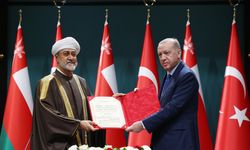Denmark will begin drafting women into its military conscription system for the first time, following new legislation passed by the country’s parliament earlier this month. The reform marks a significant expansion of Denmark’s conscription policy, which has traditionally applied only to men.
Previously, women could serve in the Danish military only on a voluntary basis. While they have been eligible for full-time service since the 1970s, conscription was not mandatory. Under the new rules, women who turn 18 after July 1 will be eligible for the same lottery-based draft as men, placing both genders on equal footing in Denmark’s recruitment process.
The updated policy is part of a broader effort to expand Denmark’s defense capacity in light of evolving regional security concerns. According to the Associated Press, officials cited the "current security situation" as a driving factor behind the decision, referring to developments across Europe and within NATO.
“We’re trying to increase the number of conscripts, which will enhance overall military readiness,” said Col. Kenneth Strøm, who heads Denmark’s conscription program.
Denmark currently maintains a professional force of about 9,000 troops. In 2024, approximately 4,700 individuals completed military service, a number the government expects to increase to 6,500 annually by 2033 through the inclusion of women and longer service terms. The standard conscription period will be extended from four months to eleven, comprising both training and operational service.
The legislative change was initially planned for implementation in 2027 but was moved up to mid-2025 as part of a broader national defense agreement. Alongside the new draft policy, Denmark has announced a $7 billion military investment fund intended to increase defense spending above 3% of GDP.
Analysts note that logistical and structural issues remain, including housing shortages for recruits and the need to update military infrastructure. Rikke Haugegaard, a researcher at the Royal Danish Defense College, emphasized that the integration process will take time. “It’s not just about policy. We need to build facilities and address internal challenges,” she said.
Denmark follows other Nordic countries in introducing gender-neutral conscription. Norway implemented a similar policy in 2013, followed by Sweden in 2017.
ü







